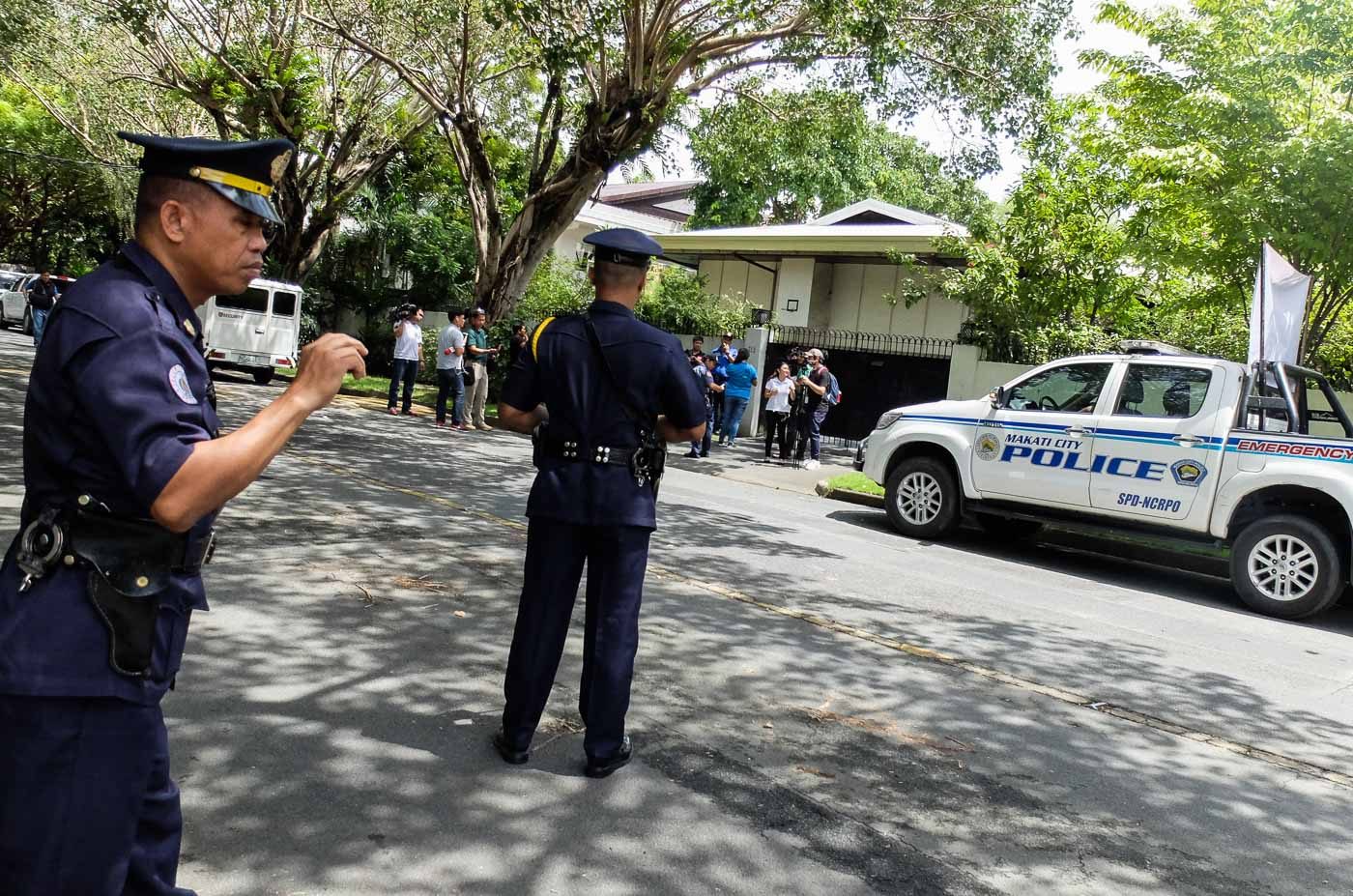SUMMARY
This is AI generated summarization, which may have errors. For context, always refer to the full article.

MANILA, Philippines – Unfazed by a Senate panel’s findings that one of his flagship anti-illegal drugs operations is unconstitutional, Philippine National Police (PNP) chief Director General Ronald dela Rosa said he has not made up his mind on whether or not to put a stop to it.
“Mas alam nila ‘yun (The senators would know better). Kung unconstitutional, we will follow. Kung sabihin nila sa kanilang report na (If they say in their report that) we stop Oplan TokHang, then we will stop. Sabihin nila (They can say), you stop your war on drugs and let the drug menace continue,” said Dela Rosa during a press conference at Camp Crame on Thursday, December 8.
But he said he will have to seriously consider the matter. “Pag-isipan ko muna kung stop ko ‘yan dahil ‘di ako papayag na kakalat ang droga. But ‘yung legal standpoint na ‘yan, we will follow what is legal. I-co-consider namin.”
(I’ll think about it before I stop it because I will not allow illegal drugs to spread. But we will follow the legal standpoint. We will consider it.)
Dela Rosa, who has led the PNP since the war on drugs began in July, said the police will “step back and reconsolidate [its] forces and reevaluate the situation.”
“TokHang” refers to Oplan TokHang, among the PNP’s main anti-drug campaigns. TokHang is a combination of the Bisaya words “tuktok” and “hangyo” which literally means “to knock” and “to plead.” Police knock on the homes of suspected drug users and pushers to ask them to change their ways.
His brainchild
The operation is the brainchild of Dela Rosa, during his stint as Davao City chief of police. Since going nationwide, TokHang has been customized by different police chiefs and commanders, also upon the orders of Dela Rosa.
It has one common feature, however. “Surrendered” personalities are typically asked to go to the nearby police station or barangay (village) hall and are made to sign “voluntary surrender certificates.” The Senate committee on justice and human rights noted that doing this was “in violation of [the surrenderer’s] Constitutional rights, particularly the rights of the accused.”
The committee said police and other law enforcement offers should avoid “urging”
drug personalities to sign the certificates. Committee chairman Senator Richard Gordon is himself a lawyer.
Oplan TokHang is the PNP’s main program to nab “street level” drug personalities – small-time pushers and users, for instance. Since July 1, police have tallied over 800,000 “surrendered” personalities nationwide.
But the program is not without its controversies. Some Oplan TokHang excursions have ended up bloody. There have also been reports of TokHang “surrenderers” who were eventually gunned down by police in supposed operations.
The police insist those who died fought back and threatened the lives of cops. (READ: Dela Rosa to Senate: We are not butchers)
Although the committee led by Gordon has raised alarm over the constitutionality of TokHang, there have been no moves – even from Duterte’s fiercest critics – to question the police operation before the Supreme Court. – Rappler.com
Add a comment
How does this make you feel?
There are no comments yet. Add your comment to start the conversation.